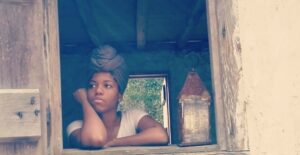I’m deeply Southern—born in Monroe, Louisiana and raised between Savannah, Georgia and New Orleans. My roots stretch wide and deep, and they’re braided into the soil, the stories, and the spirits of every place I’ve called home. As a child, I traveled often, and that early exposure to different ways of being planted in me what Zora Neale Hurston once called “the spyglass of anthropology.” I paid close attention to how different and similar the foods, dialects, traditions, and landscapes were of places I’d visit.
Today, I carry that practice forward as an independent writer, speaker, and researcher. I travel to communities across the African Diaspora, amplifying personal and communal narratives that center cultural memory, creative expression, and ancestral wisdom. I’m supa drawn to topics like foodways, language, traditional crafts, plant medicine, spiritual practices, and how we express ourselves to reclaim and redefine who we are. Whether I’m documenting Gullah Geechee basket-makers or gathering the stories of Black grandmothers, I move with reverence for the “old ways”—as blueprints for the future.
At the heart of everything I do is a love for our people, our style, creativity, joy, and brilliance. I want my work to inspire a sense of belonging, pride, curiosity, and urgency.
